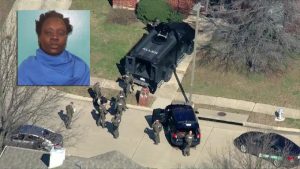Texas Republican lawmakers are back on a fast track to pass a sweeping voting bill after a sudden end of Democrats‘ 38-day walkout. The decision to end the walkout is causing rifts among some Democrats who said on Friday that they felt “betrayed” by colleagues who returned to the state Capitol.
Texas is the last big GOP-controlled state not to have passed the restrictive voting laws that have been driven by former President Donald Trump‘s claims of a stolen 2020 election.
The state is likely to pass the bill only in a matter of weeks after enough Democratic lawmakers ended their holdout on Thursday to restore a quorum — by the slimmest of margins — in the state House of Representatives.
Also read: New evidence suggests US Capitol attack was coordinated: Report
The move by a section of Democrats broke a stalemate that brought the Texas Capitol to a standstill. Now the Republicans are working fast to advance a sweeping bill to the House floor as early as Monday. The collapse of Democrats’ holdout frustrated a faction that appeared ready to torpedo the bill for the third time in the state. GOP holds a commanding majority in the statehouse and it was always unlikely that the Democrats could permanently stop the bill from passing.
The bill must reach Republican Governor Greg Abbott’s desk by September 5. If it does not, Republicans will have to start over and try again for the fourth time.
Nearly three dozen Democratic lawmakers have signed onto a statement that did not say whether they would now return but took aim at the few who already did.
“We are disappointed that a few Democrats chose to return to the floor. We feel betrayed and heartbroken, but our resolve is strong and this fight is not over,” the Associated Press quoted the statement as saying.
Not all Democrats took part in the walkout, but the return of three Houston lawmakers on Thursday is what finally pushed the House back to a quorum, which is normally 100 representatives. In a statement on Thursday, the three lawmakers — Armando Walle, Ana Hernandez, and Garnet Coleman — defended their return by pointing to the growing urgency of surging COVID-19 caseloads in Texas. They also said they had pushed Congress enough on voting rights legislation.
For months, Texas Republicans have tried to pass measures that would prohibit 24-hour polling sites, ban drive-through voting and give partisan poll watchers more access. Those elements remain in a bill that was already passed by the Senate, and while the House may make changes, Republicans have shown no indication that they will remove some of the most hotly contested provisions.






